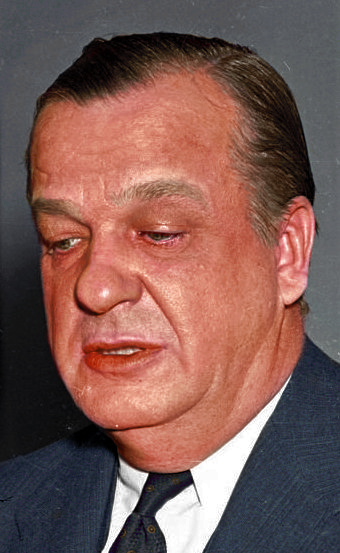The Evening Star (February 9, 1946)

Eliot: UNO site opposition
By George Fielding Eliot
To anyone who has ever during the past 10 years tried to discuss either foreign or domestic politics across a Westchester or a Greenwich bridge table, the reaction of the residents of those parts to the proposed location of UNO headquarters in their midst will at least be no surprise, whatever else may be said of it.
“The whole of North Castle is inflamed,” moans Town Supervisor James D. Hopkins of that ancient Westchester community. That’s too bad, of course; but the whole world has been inflamed these past six years with a fever of somewhat greater malignancy than that which now besets the citizens of North Castle.
“We don’t know whether we are to become refugees or where we are going to make our bed after the UNO moves in,” complains Sumner McCall, chairman of the Round Hill Road Association. One wonders whether Mr. McCall, a vice president of the American Brake Shoe & Foundry Co., and a director of various other sizable corporations, would be surprised to learn that there are throughout this world considerable numbers of miserable war-shattered folk – real and tragic refugees – who would not be greatly exercised even if Mr. McCall were driven to make his bed in the squalor of the Waldorf-Astoria, but who are greatly exercised, indeed, about the future of the UNO.
![]()
Mr. James Joseph (Gene) Tunney of Arlington and Stamford, whose list of directorates (and of top-drawer clubs) is even longer than Mr. McCall’s, says with commendable caution, “Naturally we are all for the UNO,” but adds the view that the site should go to some less settled area “where the people want it.” And where, of course, it will not disturb the even tenor of Mr. Tunney’s comfortable existence. Mr. Tunney, who is among other matters distinguished as a Shakespearean scholar, says his home is 150 years old and he doesn’t want to give it up. He might perhaps reflect on the words of King Lear: “Upon such sacrifices the gods themselves throw Incense.”
All of this would not be of much importance, in itself, save to remind us that willingness to contribute to the general welfare is a sentiment not universally present in human breasts; a fact of which there is too much evidence already. But it is important in another sense, for it is representative of a section of American opinion, or rather of American inertia and reaction, which can be a real danger to the stability of that edifice of world security of which America must be the chief pillar. There are still a lamentable number of Americans who are ready to say, “Let us keep what we have, let us make America safe and snug, let us be suspicious of all that foreigners may do and say. Let us give nothing to the rest of the world save on a cent-per-cent basis.” I do not say that the individuals above-mentioned hold these views. I do say that these views are prevalent throughout the communities affected by the UNO decision. I do say that there is not a country club in all that area at which, of a Saturday evening, such opinions would lack hearty applause.
![]()
Possibly all this is due more to lack of understanding than active antipathy to international organization. Perhaps these fortunate folk have never before had to think very much about the concerns of people outside their own circle of activities. Maybe in that sense the coming of the UNO will be good for them. For example, Mr. Wilkie Bushby, a New York lawyer who owns a home in Greenwich, says (according to the Bridgeport Sunday Post) that Greenwich residents have “no hostility” to the UNO but don’t want “its capital plunked down in Greenwich.” Perhaps after Mr. Bushby and his friends have thought the matter over for a while it may occur to them that there are worse things which might be “plunked down in Greenwich” than the headquarters of a world organization to keep the peace of all mankind.
Atomic bombs, for instance.